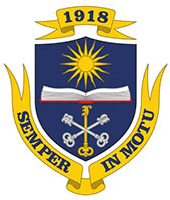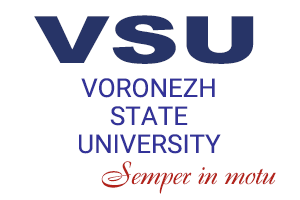On 25 December, the online discussion “Students’ opinion: distance learning in Russia and Germany” was held at the Department of Regional Studies and National Economies at the Faculty of International Relations of Voronezh State University. The event was organised for undergraduate students by Natalia Zhurbina, acting head of the department.
The most common issues that students have come across during distance learning are the lack of face-to-face contact with lecturers, issues with self-discipline, the Internet connection and other disturbances, and the lack of video/audio recordings of the lesson.
“If you are eager to learn, you will learn no matter what form of learning is used. Experience has proven that students who complain about distance learning did not show very good results when they studied offline either,” said Tatiana Telkova, the leader of one of the groups from the third year and the scholarship holder of the Oxford Russia Fund.
The participants of the discussion did not only focus on problems. They tried to identify the advantages of online education. They include saving money on travel and food, the opportunity to choose extra courses on open public educational platforms and complete them quickly and effectively. Also, there are a lot of events both national and international, which are easier to access. The students also noted that when studying from home, they explore new websites and programmes.
Another topic for the seminar was the discussion of distance learning in Germany. Maria Gubareva and Nikita Shikhatov, fourth year students, shared their experiences from Germany. The students are now completing a programme at Martin Luther University (Halle, Germany).
“The educational processes in Russia and Germany are based on identical platforms. The differences include the opportunity to negotiate the timetable. That is why the classes can take place as late as at 9 pm!” said Maria Gubareva.
“Self-tuition plays an important role when studying at a German university. Students have to study as many scientific texts as possible, to find necessary materials, and to be ready to take part in discussion on the topic. They hardly ever get homework with deadlines,” said Nikita Shikhatov.
First year students, Yuliana Tarasova, Yekaterina Kalanchuk, Yekaterina Zavalina, Maria Kozlova, Valeria Batrakova, and Аnastasia Shashkina, agreed that such events are very beneficial:
“During the pandemic, there is a pressing need for communication and our meeting has filled this need. Each person had a chance to share the problems they have faced during distance classes, could find a solution to these problems, and understand the advantages of studying from home. Talking to senior students made us feel more energetic. Their experiences and stories about their studying abroad helped us reconsider our plans. We would also like to thank Natalia Zhurbina who provided support to each of us!”




